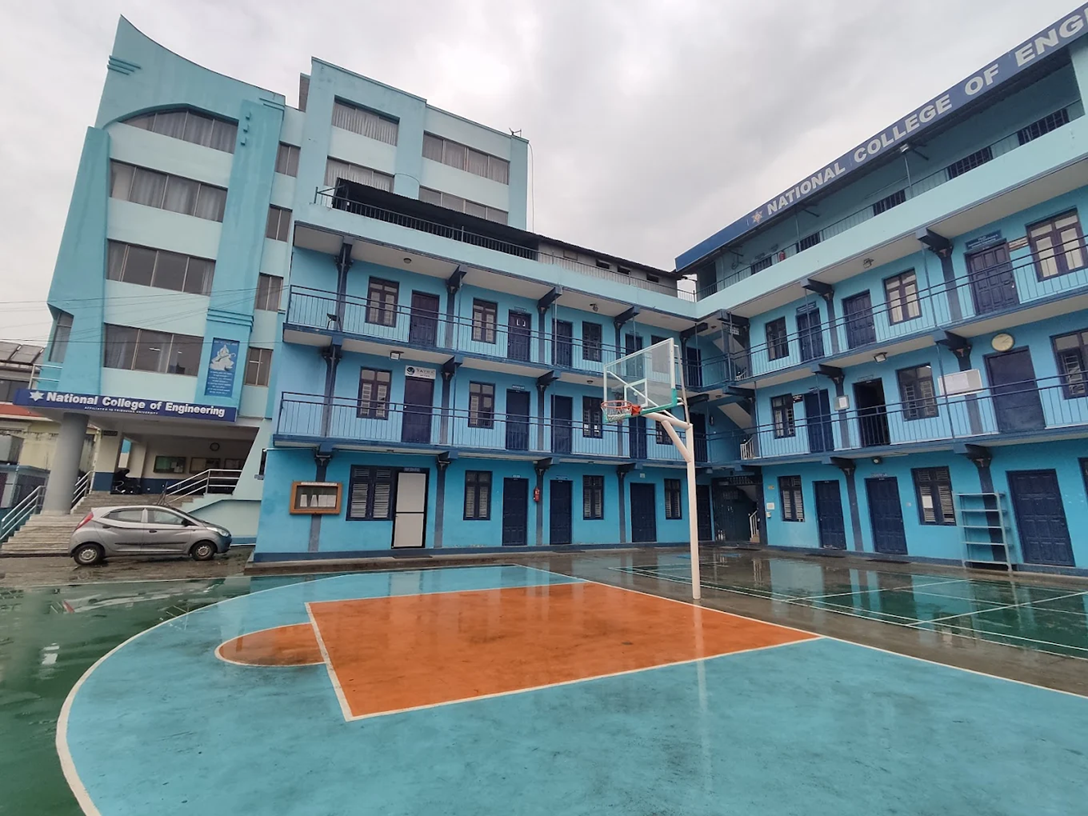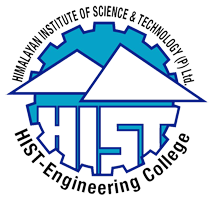Overview
Bachelor of Electronics, Communication and Information Engineering at National College of Engineering (NCE), Lalitpur
Bachelor of Electronics, Communication and Information Engineering at National College of Engineering (NCE), Talchikhel, Lalitpur is a four-year Tribhuvan University (TU/IOE) program with 48 seats.
You study electronics, signals and systems, communication networks, microwave and antenna basics, optical links, embedded systems, and information technologies through theory, labs, and a capstone.
Graduates move toward Nepal Engineering Council (NEC) registration after completing the required process.

Overview
The program follows the IOE BEX framework used across TU constituent and affiliated colleges. Classes mix core theory with lab practice and project work. Department pages at NCE confirm the program and seat count under the Electronics & Computer Engineering unit.
Highlights
-
Affiliation: Tribhuvan University (Institute of Engineering—IOE)
-
Duration: 4 years, 8 semesters (BEX framework)
-
Seats at NCE: 48 (BEX)
-
Location: Talchikhel, Lalitpur
-
Admission: IOE entrance qualification, then NCE application and counseling
-
Licensure pathway: NEC registration after graduation from a recognized program
Curriculum Details
IOE sets the academic structure for BEX. Subject names differ slightly across revisions, yet core strands remain consistent.
Year 1–2: Foundations
Students build the base for later courses.
-
Mathematics I–II; Engineering Physics; Applied Mechanics
-
Basic Electrical Engineering; Computer Programming
-
Engineering Drawing; Digital Logic; Discrete Structures
-
Signals and Systems introduction; Instrumentation basics
-
Laboratory work in circuits, programming, and digital logic
Year 3–4: Electronics, Communication, and Information Systems
Focus shifts to communication and systems practice.
-
Electronic devices and circuits; microprocessors/microcontrollers
-
Analog and digital communication; propagation and antennas
-
Microwave fundamentals; optical communication concepts
-
Computer networks; embedded systems; signal analysis/DSP basics
-
Electives listed in IOE documents and department pages
-
Minor project and a final capstone with report and viva under TU rules
Laboratories and Field Components
Labs include device characterization, logic and microcontroller practice, communication experiments, antenna basics, networking setups, and DSP tasks. Students complete a minor project before the final-year capstone. IOE and NCE pages indicate these practical elements within the BEX route.
Objectives
-
Build grounding in electronics, communication theory, and information systems in line with TU/IOE expectations.
-
Guide students to analyze circuits, plan link budgets at introductory level, configure basic networking tasks, and prepare structured reports.
-
Encourage safe lab practice, documentation, and professional conduct consistent with NEC expectations.
Scope
Graduates enter telecom operators, ISPs, broadcast and networking services, embedded and electronics firms, ICT units in banks and projects, and public bodies. Edusanjal and NCE sources confirm the BEX offering at NCE under TU, which supports employer recognition in Nepal.
Learning Outcomes
Students who complete BEX at NCE are expected to:
-
Analyze small-signal and power-level behavior of devices in lab conditions and interpret characteristic curves.
-
Explain and apply modulation concepts, link budget elements, and basic channel effects in guided exercises.
-
Configure simple LAN setups, assign IP schemes, and test throughput and latency in lab networks.
-
Build a microcontroller prototype that reads a sensor, controls an actuator, and logs data with clear documentation.
-
Prepare circuit and system reports that include figures, tables, and references as required by departmental rubrics.
These outcomes reflect IOE coursework and the department’s practical orientation.
Skill Development Modules
NCE integrates structured practice into teaching hours and club activities. You strengthen:
-
Electronics practice: Biasing, characterization, filters, and PCB fundamentals in supervised labs.
-
Communication systems: AM/FM/QAM exercises using trainer kits or software tools common in IOE teaching.
-
Antennas and microwave: Pattern observation, basic parameter checks, and safe handling near RF sources.
-
Optical and fiber basics: Loss measurement tasks and simple link checks.
-
Embedded systems: Microcontroller coding, peripheral interfacing, and power budgeting for small builds.
-
Networking: Switching and routing basics, simple VLAN tasks, monitoring with packet tools.
-
Documentation: Report structure, figures, citation, and viva preparation supported by departmental guidance.
Teaching Methodology
Faculty conduct lectures, tutorials, lab sessions, a minor project, and a capstone. Problem-solving classes mirror IOE assessment styles. Guest sessions and short visits connect classroom topics to telecom operations, broadcast stations, electronics workshops, and network facilities in the Valley. NCE pages and the department microsite present the program under the Electronics & Computer Engineering unit with seat information and course links.
Admission Requirements
-
Entrance: IOE entrance qualification for the intake year. Official IOE portals publish registration and notices.
-
Academic background: 10+2 Science or equivalent as per IOE rules.
-
Application at NCE: Apply online through the NCE site with IOE roll number and rank, provide contacts, select program priority, and pay the application fee via listed modes. Applicants can track application status on the portal.
Documents usually required at admission
-
SEE/SLC and 10+2/I.Sc./A-Level certificates and mark sheets
-
Character certificate and original migration certificate
-
Nepali citizenship copy and passport photos
-
Color print of the IOE score card
Applicants should verify the current list and deadlines on the NCE admissions page during the active cycle.
Career Opportunities
Early-career roles include junior network engineer, RF planning support, broadcast/communication technician, embedded junior, test and QA roles for electronics products, and ICT support across projects. Many graduates pursue NEC registration after meeting eligibility. A recent NEC notice reiterates that only recognized degrees lead to registration, and a revised common registration exam schema is in effect.



















